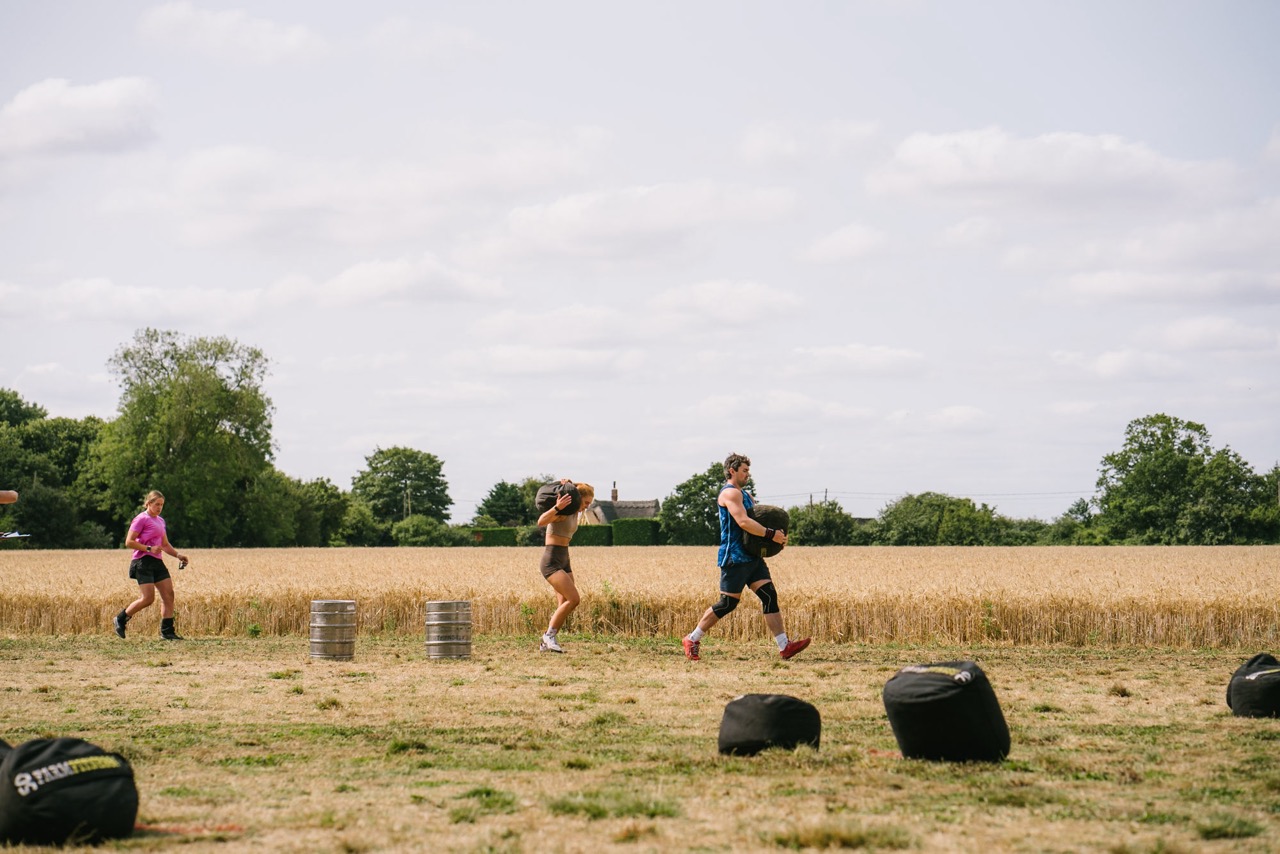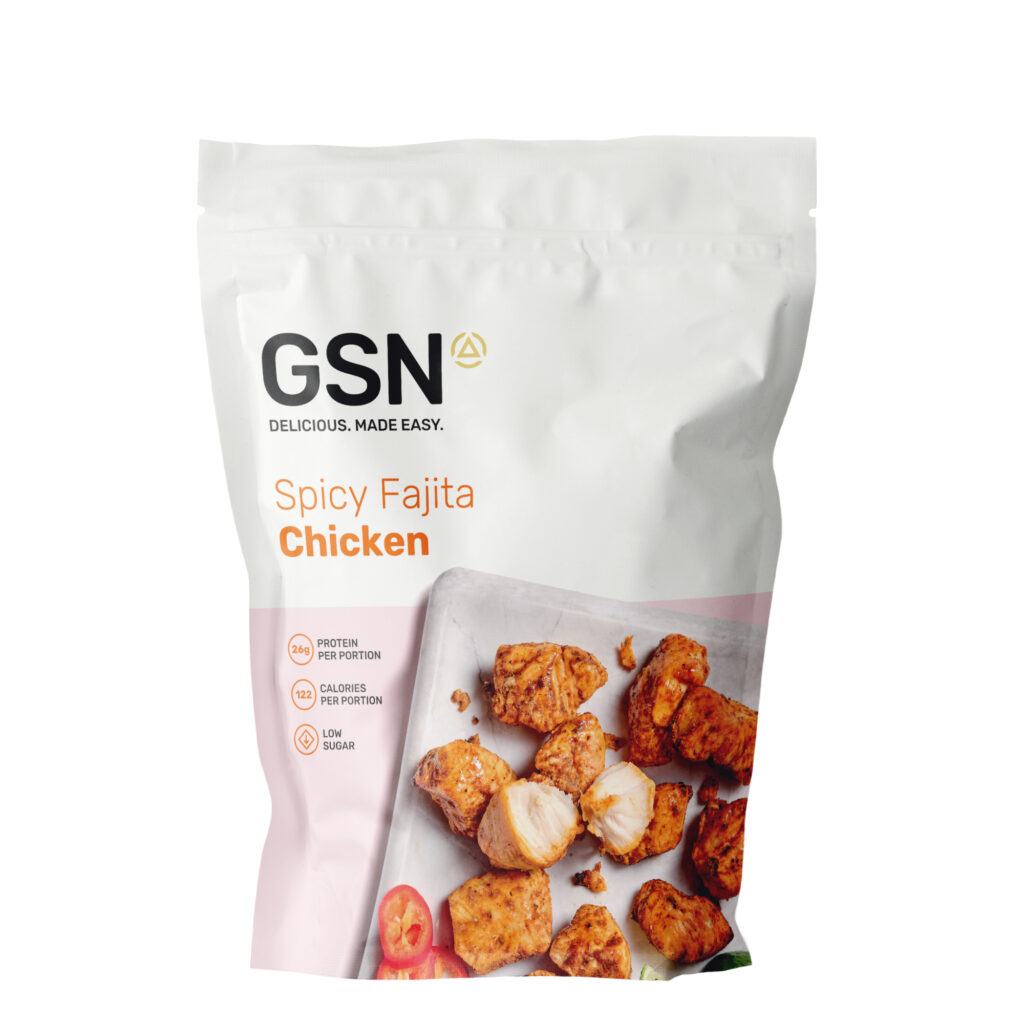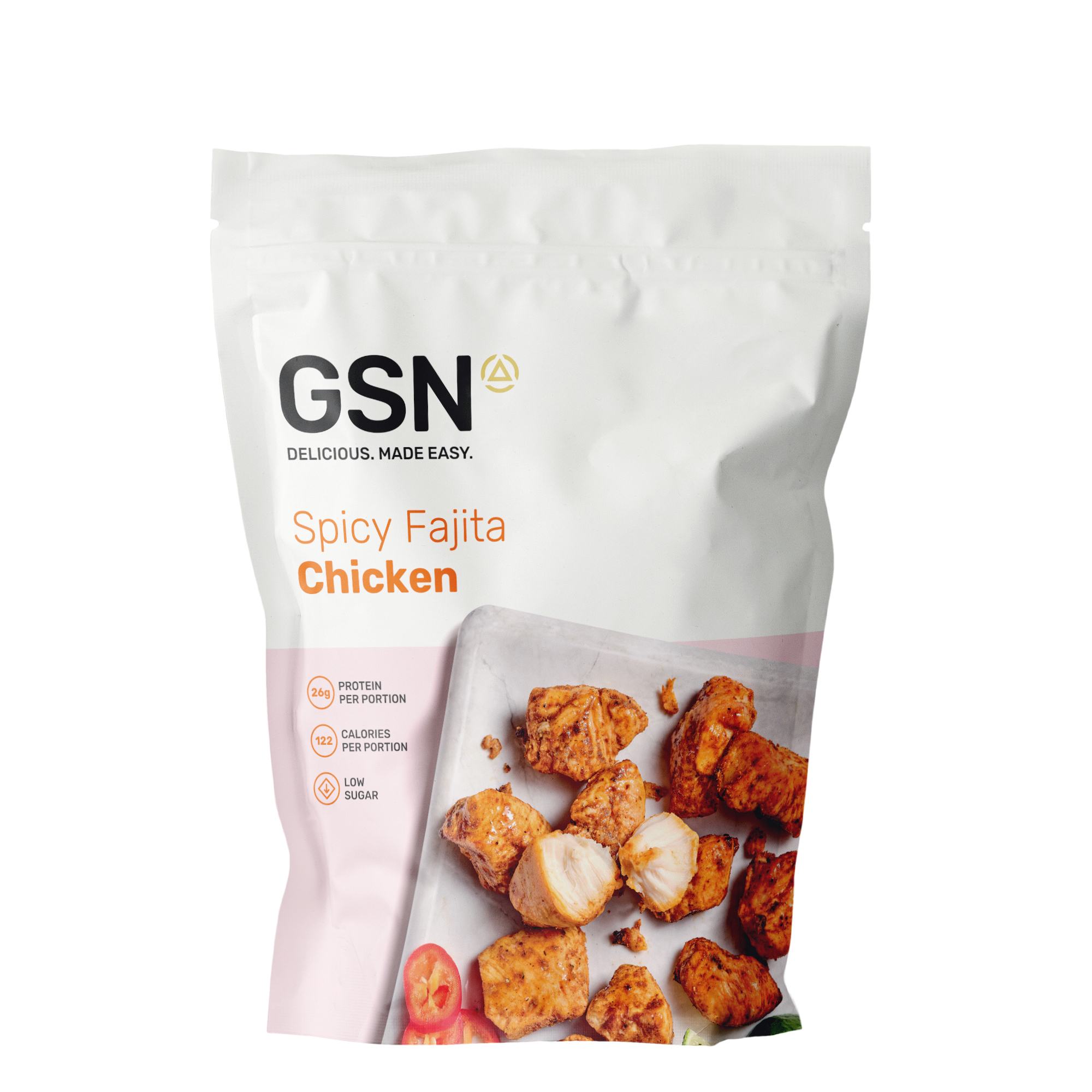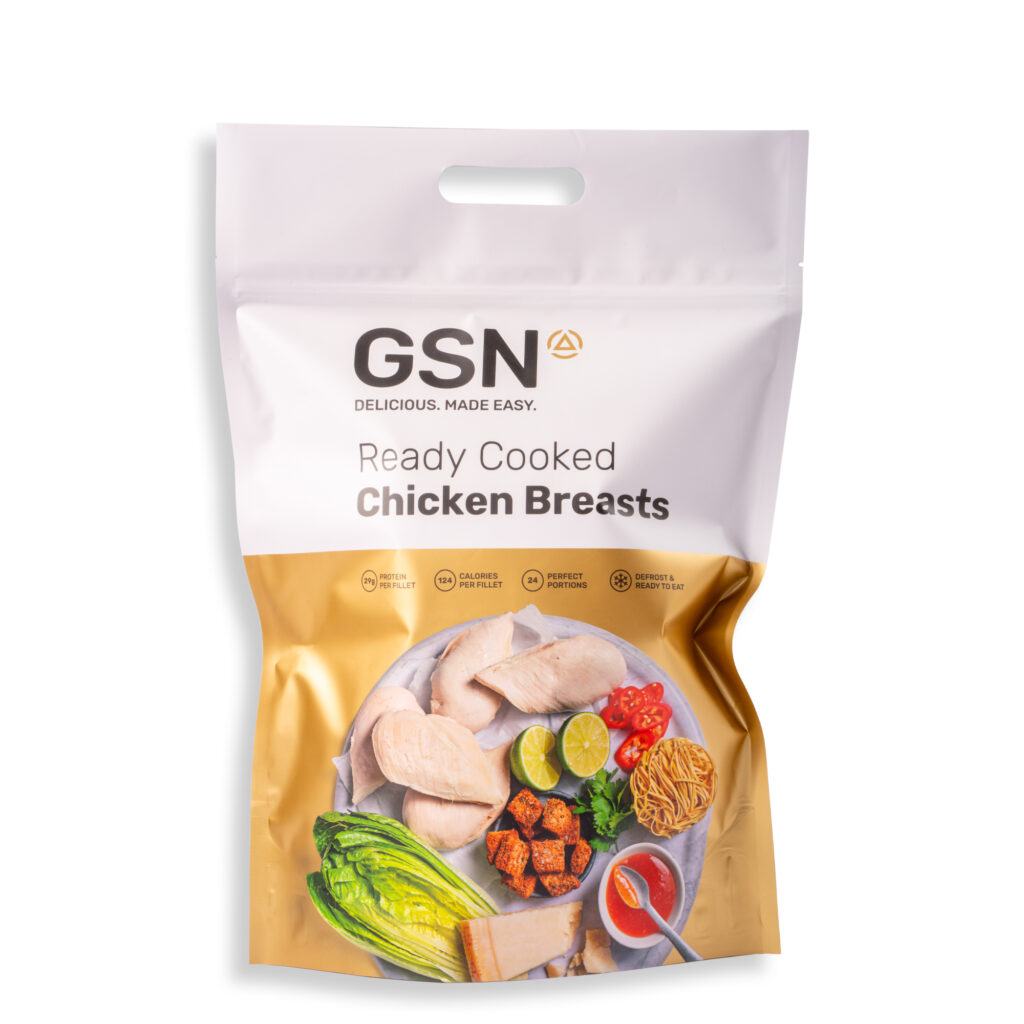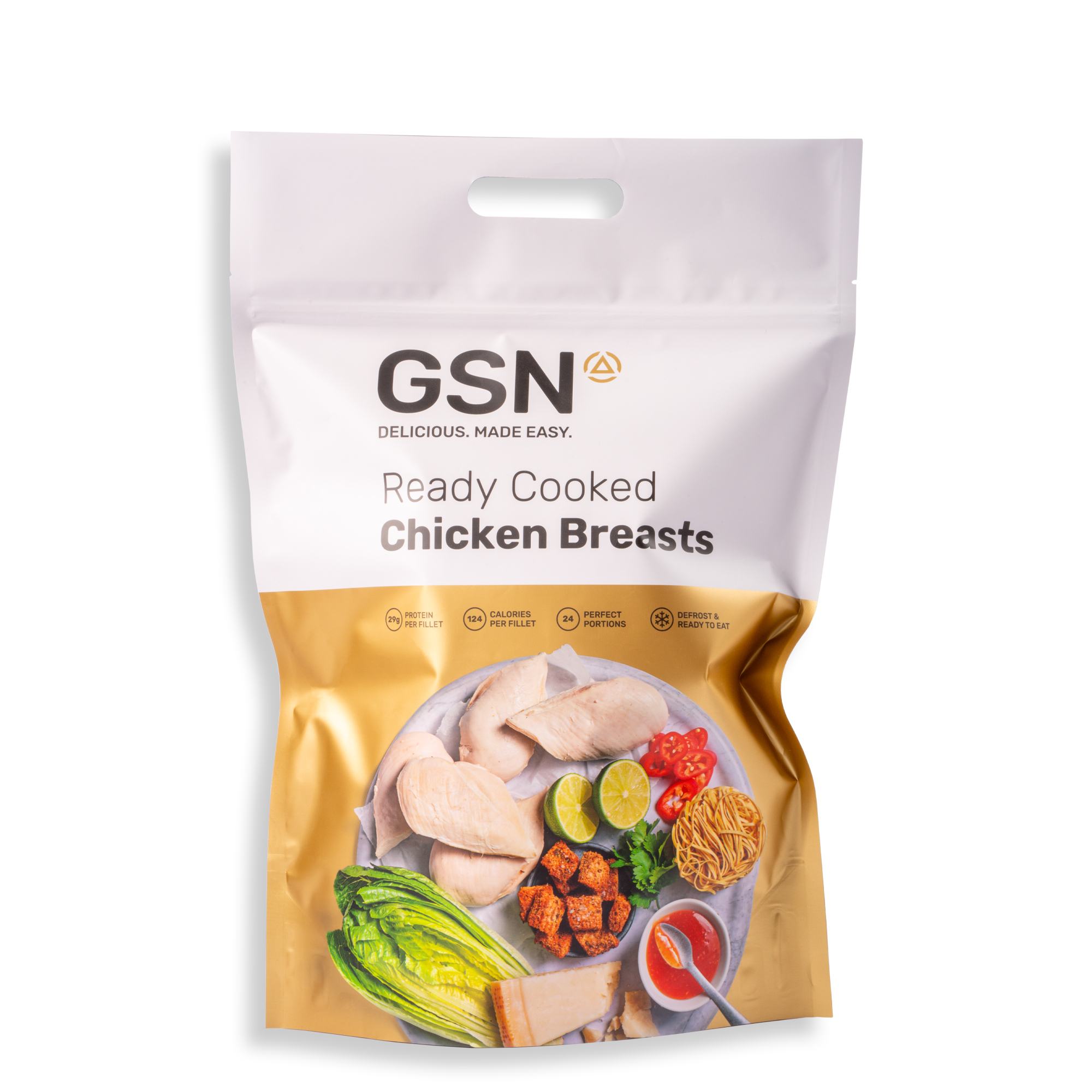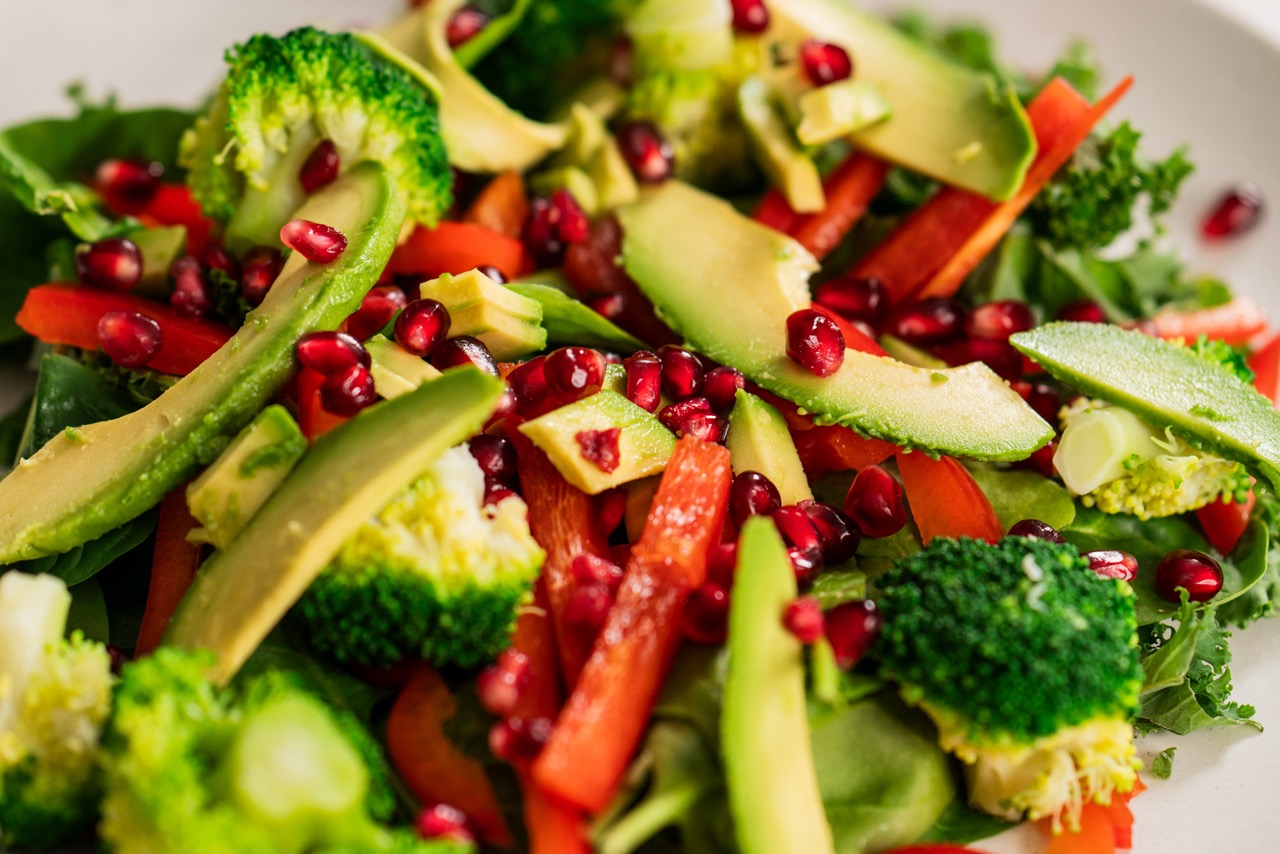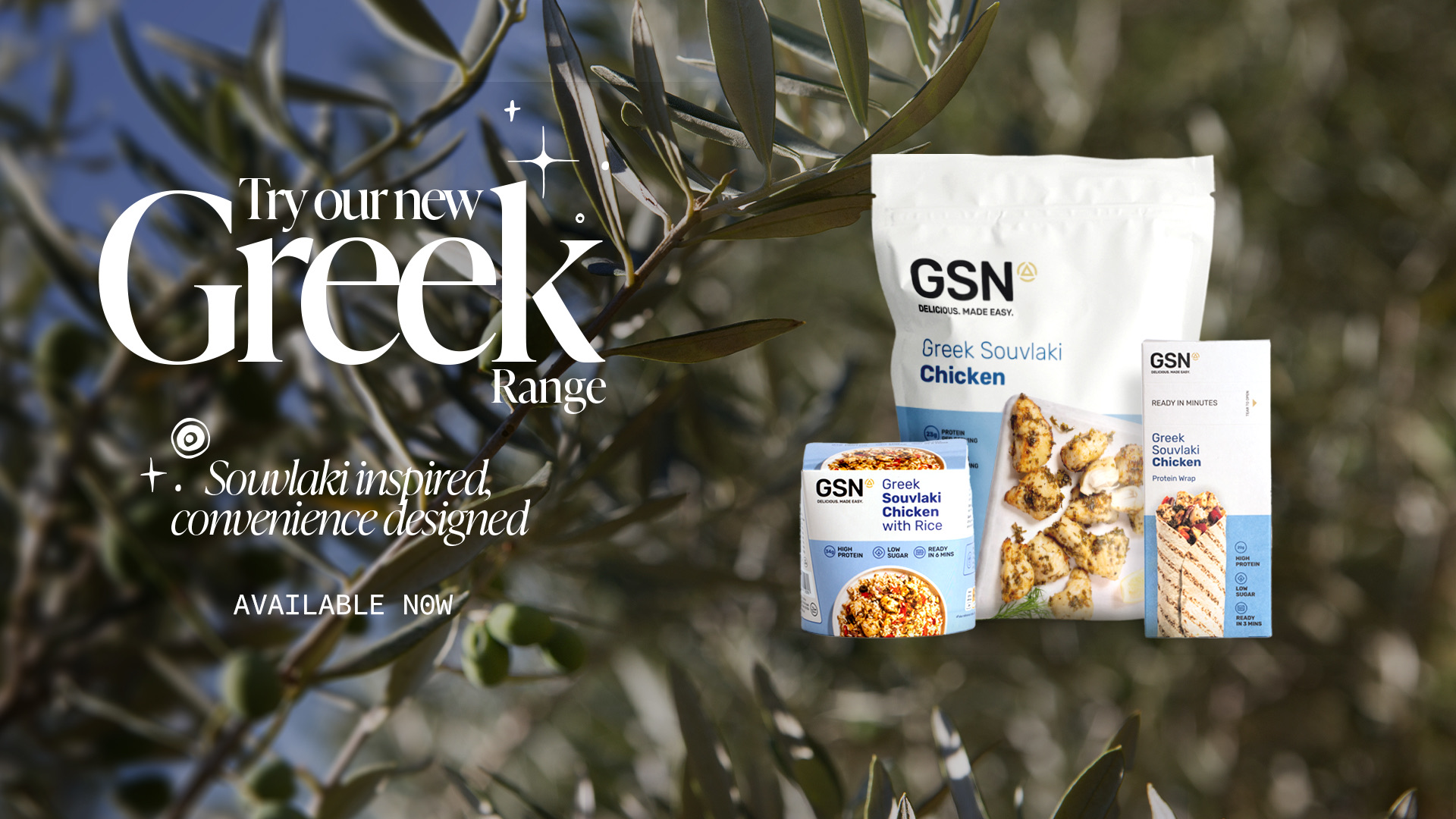Seasonal Sports Nutrition: Optimising Your Spring Training Diet
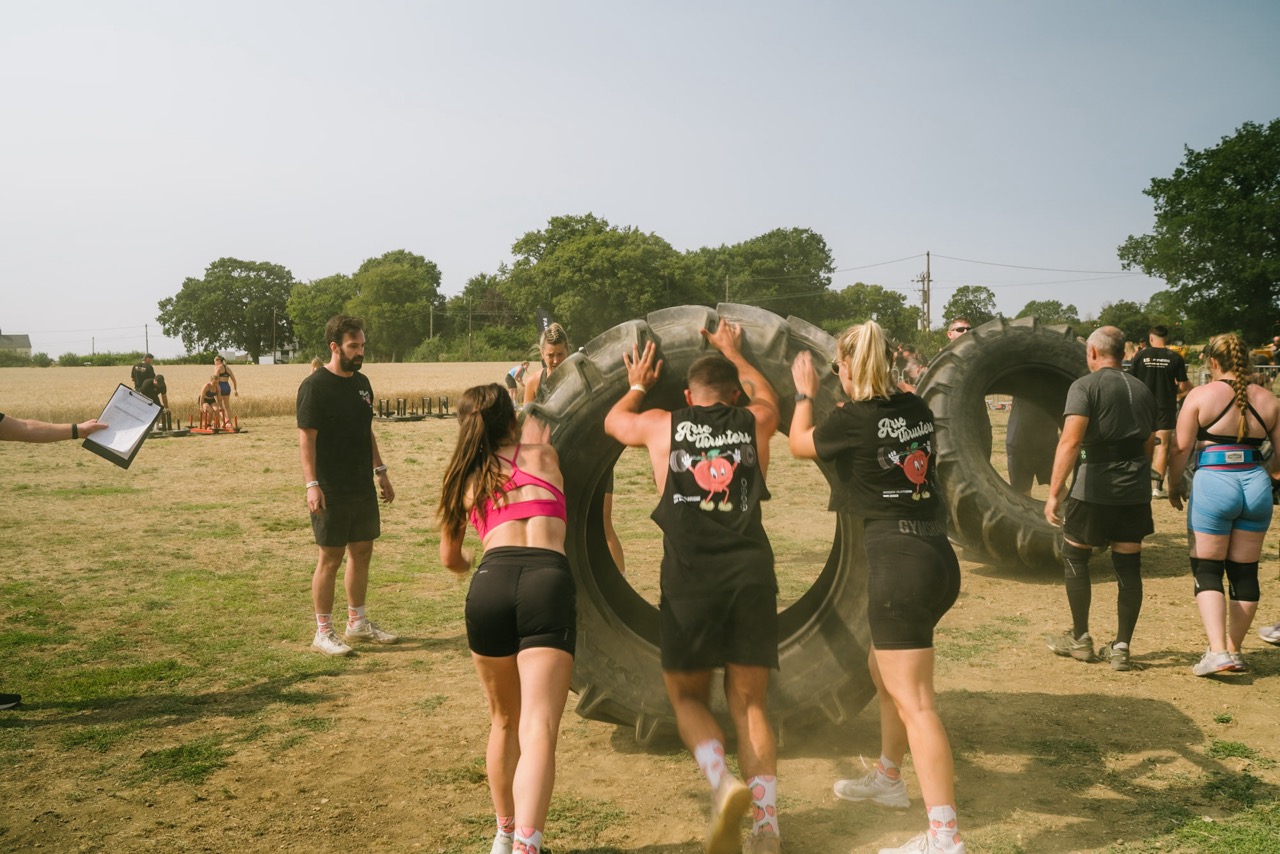
TL;DR (Just the gist)…
Spring sports nutrition is essential for athletes looking to improve endurance, recovery, and overall health. As training intensity rises with longer daylight hours, proper macronutrient balance, hydration, and seasonal foods become key to peak performance.
Key Takeaways:
- Adjust Your Macronutrients: To sustain energy levels and muscle recovery, aim for 40% carbohydrates, 30% protein and 30% fats.
- Stay Hydrated: Warmer temperatures mean higher sweat rates. Ensure electrolyte balance to avoid fatigue.
- Leverage Seasonal Foods: Incorporate fresh vegetables, lean proteins and healthy fats to optimise nutrient intake.
- GSN Product Support: For convenient, high-protein meal options, use GSN’s ready-cooked chicken breasts, protein wraps and chicken bites.
Introduction: Why Spring Sports Nutrition Matters
Spring sports nutrition plays a crucial role in adapting to increased training demands. Longer days and improved weather mean more outdoor activity, requiring careful attention to hydration, energy levels and muscle recovery.
Athletes need to fine-tune their diet to maximise training adaptations. Studies indicate that hydration, carbohydrate timing and key micronutrient intake are essential for improving endurance and recovery (Burke, 2015).
1. Spring Sports Nutrition: Key Seasonal Adjustments
Why Adapt Your Diet for Spring?
- Temperature & Hydration Changes: Warmer weather increases fluid loss, requiring better hydration and electrolyte replenishment.
- Metabolic Adjustments: The body’s metabolism shifts as outdoor training increases, altering caloric needs.
- Increased Vitamin D Exposure: More sunlight boosts vitamin D synthesis, which is crucial for bone health and muscle recovery.
Scientific Perspective on Seasonal Adaptation
According to the International Journal of Sport Nutrition and Exercise Metabolism, adjusting nutrition to seasonal demands can enhance endurance, speed up recovery and optimise muscle function (Burke & Hawley, 2018).
2. Macronutrient Strategies in Spring Sports Nutrition
Carbohydrates: Fuel for Performance
Carbohydrates remain the primary energy source for endurance and high-intensity training. A well-structured spring sports nutrition plan includes optimal carb intake for sustained energy. For more on carbohydrates, click here!
- Daily Intake Recommendation:
- Endurance athletes: 6-10g per kg body weight.
- Strength athletes: 4-6g per kg body weight.
- Best Carbohydrate Sources for Spring:
- Complex Carbs: Quinoa, brown rice, whole wheat pasta.
- Fibre-Rich Fruits & Vegetables: Berries, sweet potatoes, leafy greens.
Proteins: Muscle Recovery & Growth
Protein is key in muscle repair, satiety and strength development. Ensuring adequate intake is critical for optimal post-workout recovery.
GSN Product Integration
- GSN Ready Cooked Chicken Breasts: 34g of protein per serving, perfect for post-training meals.
- GSN Chicken Bites: Ideal for on-the-go snacking and post-gym recovery.
3. Hydration & Electrolyte Balance in Spring Sports Nutrition
Warmer temperatures mean higher sweat loss, impacting performance and recovery. Ensuring hydration is a key pillar of spring sports nutrition.
How Much Water Do Athletes Need?
- General Recommendation: 2.5-3L daily.
- Training Days: Increase intake by 500-1000ml, depending on sweat rate.
Electrolyte Replenishment
Electrolytes are vital for muscle function and preventing cramps.
- Best Sources: Bananas, sweet potatoes, spinach, nuts.
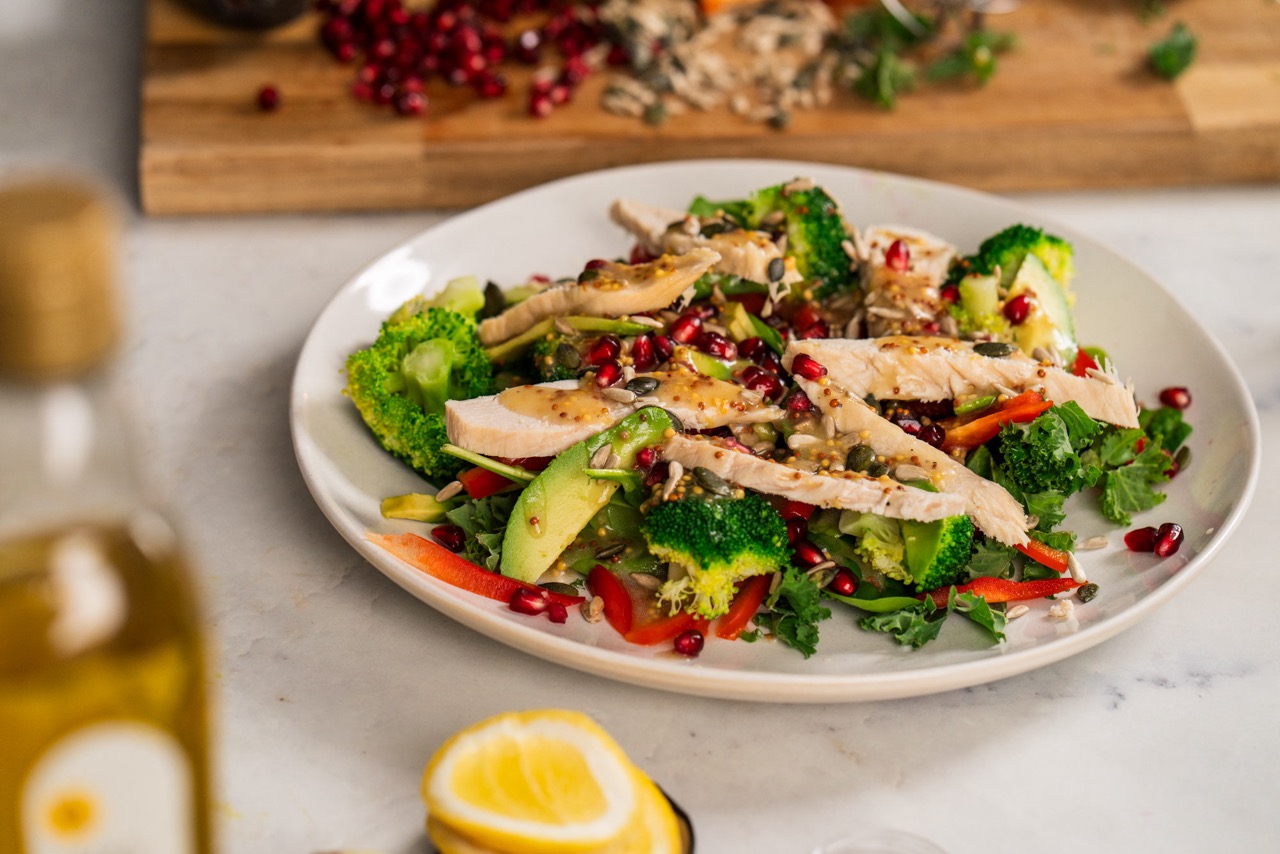 Super Antioxidant Chicken Salad
Super Antioxidant Chicken Salad 4. Performance-Boosting Micronutrients in Spring Sports Nutrition
While macronutrients provide the bulk of energy and recovery support, micronutrients play a vital role in optimising metabolism, reducing inflammation and preventing fatigue. As training intensifies in spring, certain vitamins and minerals become particularly important.
Vitamin D: The Sunshine Nutrient
Spring provides an increase in natural sunlight exposure, boosting vitamin D production. This nutrient is crucial for bone health, muscle recovery and immunity.
- Improves calcium absorption for stronger bones.
- Enhances muscle recovery and immune function.
Best Sources: Oily fish (salmon, mackerel), fortified dairy, egg yolks.
Iron: Oxygen Transport for Endurance
Iron is essential for red blood cell production, ensuring efficient oxygen delivery to muscles. Since outdoor training increases endurance work, iron intake is key in a spring sports nutrition plan.
- Best Sources: Lean meats (chicken, turkey), legumes, dark leafy greens.
5. Meal Planning for Spring Sports Nutrition
Pre-Workout Nutrition: Energy & Endurance
Goal: To fuel muscles with readily available energy and prevent glycogen depletion.
Timing: 2-3 hours before training.
Ideal Pre-Workout Meal: A high-carb, moderate-protein, low-fat meal such as a whole grain wrap with grilled chicken, spinach and avocado. For an energy boost, pair it with a banana and almond butter smoothie.
Head to our Recipe Section if you need a little further inspiration…
6. Spring Sports Nutrition: Recovery Strategies
Active Recovery & Adaptation
Spring training involves increased outdoor activity, placing a higher impact on joints and muscles. Implementing active recovery days is key to maintaining optimal performance.
- Low-impact activities: swimming, yoga, walking.
- Mobility work: dynamic stretching & foam rolling.
- Proper hydration: ensure post-workout fluid replenishment.
7. Summary & Takeaways
Spring marks an important transition for athletes, demanding adjusted nutritional strategies for better energy, recovery and endurance.
Key Action Points for Athletes
- Optimise Macronutrients: Maintain 40% carbs, 30% protein, 30% fats for sustained energy.
- Prioritise Hydration: Warmer temperatures increase sweat loss, requiring electrolyte balance.
- Utilise Seasonal Foods: Leverage fresh fruits, lean proteins and healthy fats for performance gains.
- Incorporate GSN Products: Convenient, high-protein meals for better training nutrition.
Recommended GSN Products:
Final Thoughts
By tailoring nutritional intake to seasonal demands, athletes can maximise performance, recovery and overall health. Spring provides the perfect opportunity to refine diet strategies, ensuring optimal hydration, micronutrient intake and protein balance.
Need ready-made, high-protein meal solutions? We’ve done the hard work for you:
Check out the full product range to fuel your spring training with ease!
Next Steps
- Share this article with fellow athletes.
- Start planning spring-specific meals for better endurance.
- Subscribe to GSN’s newsletter for expert nutrition advice.
